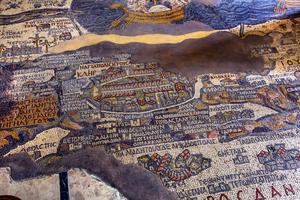German Bishop: Diluting Doctrine Doesn’t Help Anyone
Bishop Rudolf Voderholzer of Regensburg tells the Register that only putting Christ at the center and ceasing to follow a “relativistic zeitgeist” will unify the Church and stop the crisis in Germany’s materially wealthy Church that continues to lose vast numbers.

The German archdiocese of Munich and Freising published details of its financial assets in July showing they had increased by almost €92million ($110 million) between 2015 and 2016 to €2.8 billion ($3.3 billion).
Released around the same time as those figures — which don’t even include such assets as foundations, real estate, and pension liabilities — other statistics were published showing another significant drop in Church attendance in Germany.
In the country as a whole, 162,093 German nationals left the Catholic Church last year, with some areas significantly worse hit than others and dioceses such as Hamburg and Berlin boosted due too immigration.
In just the archdiocese of Munich and Freising alone, nearly 18,000 baptised Catholics left the Church last year, and just 173,000 out of the archdiocese’s 1.7 million Catholics attend Sunday Mass.
Cardinal Reinhard Marx, archbishop of Munich and Freising and president of the German bishops’ conference, insisted the Catholic Church in Germany is “a strong force, whose message is heard and accepted.” In light of the latest figures, few are likely to agree with him.
But is the wealth of the German Church, derived largely from an obligatory church tax and the threat of excommunication if it’s not paid, largely to blame for such a collapse in the German Church?
Bishop Rudolf Voderholzer of Regensburg is one of Germany’s few prelates to publicly express serious concern about the trend. For him, however, the cause is not so much the wealth of the Church but a crisis of faith.
Money Has No Moral Aspect
“Money in and of itself has no moral aspect, and this holds true for most material means we utilize,” he told the Register. As an analogy, he said no motorist would ever say that having a full tank of gas was an excuse to break the speed limit, claim it as the cause of a car accident, or even to drive cautiously or arrive safely at a destination. “The responsibility rests solely with drivers behind the wheel of their vehicles,” he said.
What matters, he said, is that material benefits are guided by the “center of our faith, by Christ,” and he argued that he would “almost go as far as to say that, when used in this manner, the Church could never have too much.”
But he stressed these resources must be used correctly and responsibly, especially by bishops and priests, and has even created a diocesan website to advise others in the Church how to best do this.
What he is firmly opposed to is following the Protestant example of trying to be ever more accommodating of secular society by adopting its values and fads. In a homily that drew widespread attention in July, Bishop Voderholzer noted how the Lutheran church has done precisely this, but also is suffering from an exodus of members and a shortage of clergy.
He said Protestants have admitted this to him; others have publicly made similar points, such as German columnist and former evangelical, Jan Fleischhauer.
In an article for Der Spiegel in March, Fleischhauer wrote that he quit Germany’s evangelical Protestants a decade ago, partly because they could no longer hold to an authentic belief in heaven and hell, making it a “lost cause” for all but the most devoted.
But he further observed that “iconoclasts” have also entered the Catholic Church, beginning at the Second Vatican Council and, in particular, through the liturgical changes that followed.
Need for Renewal of the Faith
Fleischhauer loosely predicted that as more leave the Church, it will similarly entice a more “decisive” modernization. But he said that, as Protestants have realized, if the Church fails to distinguish herself from “worldly, secular values, what need is there for the Church?” He therefore questioned why secularism cannot be limited to the state, but has to extend to the Church as well.
Bishop Voderholzer takes a similar view, saying the solution is not “constantly changing the structures,” weakening the “sacramental structures of the Church” or “diluting the message of the Gospel.” Instead, he called in his homily for a “reformation” in the “the renewal of faith” so that people once again become “curious about the faith.”
In follow up comments to the Register, he said watering down doctrine is “not helpful to anyone” but rather “creates confusion” and causes the Church to “become insignificant and dims the light of Christ.” He said “empirically based” evidence from Protestants shows this.
“This is of course definitely no reason to gloat or a time for cynicism and complacency,” he said, adding that any loss of the baptized is “painful.” But he stressed that it is “not the relativistic zeitgeist that paves the way into the future” but rather “it is exclusively Christ who says of himself, ‘I am the way, the truth and the life.’”
“And on a final note,” he said, “Christ is the way and the destination, to also heal the broken unity of the Church.”
- Keywords:
- church
- evangelization
- germany

















